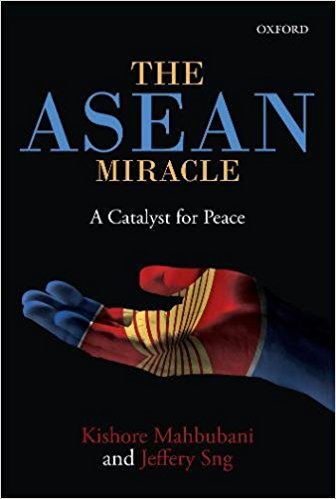The ten member-states of ASEAN (Association of South East Asian Nations) is, at times, an inspiration and, at other times, a house divided. That is how most outsiders would invariably react to the organization. Criticisms fly high when the grouping seems ineffective in handling regional issues such as human rights atrocities perpetrated by regimes from within the regional bloc. Watching ASEAN from a neighbouring region, criticisms are intended not to belittle the organization but to remind about the vital role it has in the rapidly changing geopolitics. Nevertheless, in the ‘breaking news’ culture where ‘good news is no news’ and where single event drives the story, perhaps, we barely appreciate the good things done by ASEAN as we do about its failings.
Kishore Mahbubani and Jeffery Sng’s book, under review, explains why it is imperative that the world knows ASEAN better by narrating the story of the regional body from a longer time-frame and tells us why that ought to drive the narrative on ASEAN, not by events. Spreading the positive account of ASEAN assumes significance in the context of the uncertain times we live in. As rightly noted by the authors, there is a growing sense of ‘pessimism’ engulfing the world, particularly in the West. Good stories need to be said, and said again, as it has the capacity to effect positive change. Clearly, ASEAN deserves a place in this narrative.
The book attributes ASEAN’s success to what it called the ‘ecosystem of peace’ that the grouping has created over the years. The authors have identified five factors responsible for the development of the ecosystem. Some are unique to ASEAN, the rest are present in other regional organizations as well. One of the key factors for regionalism to grow is a collective sense of an external threat to bring countries together. In ASEAN’s case, it was the threat from Communism that brought together the founding member-states. Likewise, the role of leadership in any regional initiative is critical and ASEAN was fortunate to have some extraordinary founding leaders who laid a strong foundation. Similarly, ASEAN’s economic success is largely attributable to the willingness of the founding member-states to integrate the regional bloc with the wider East Asia and American economies.

